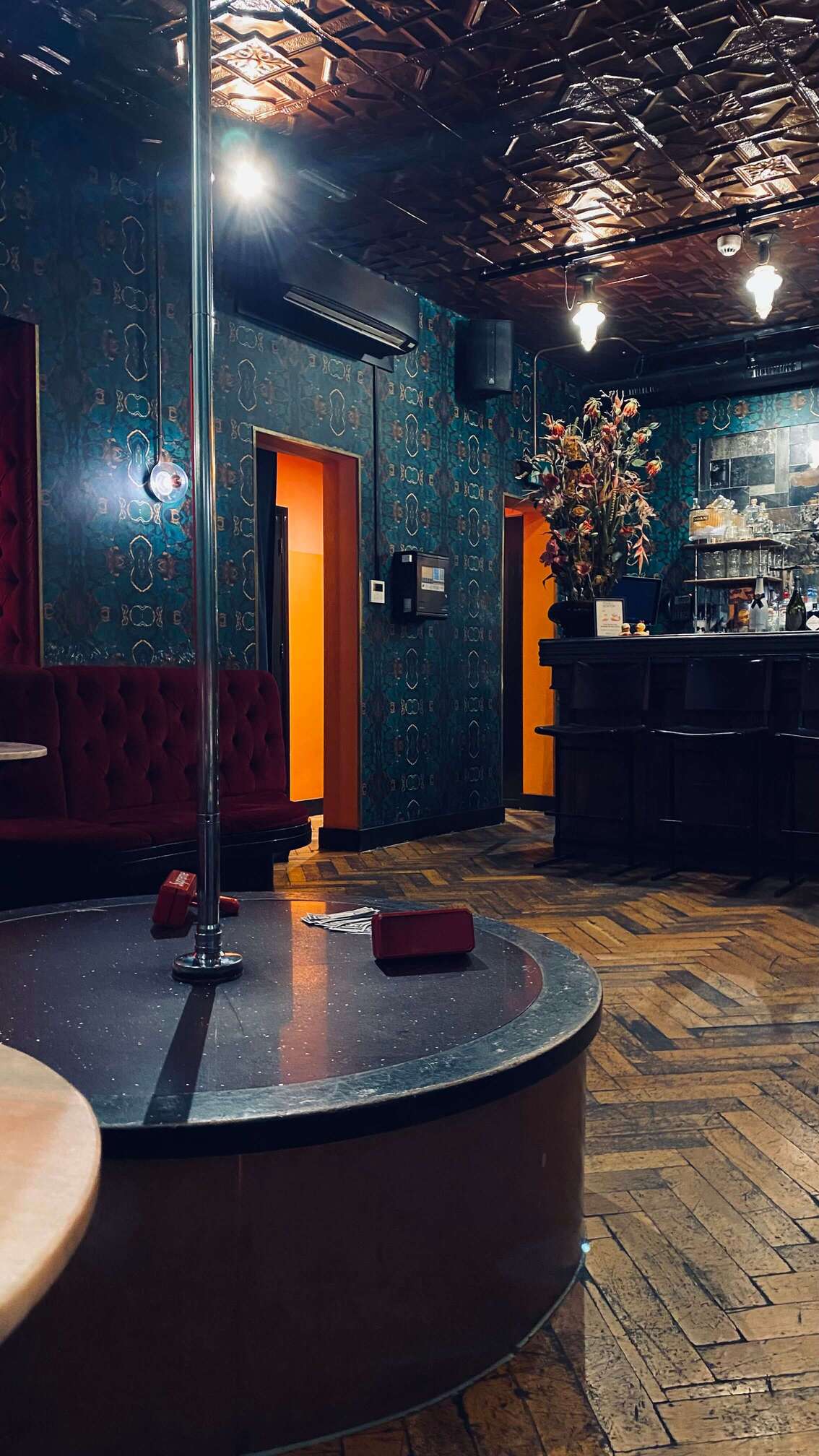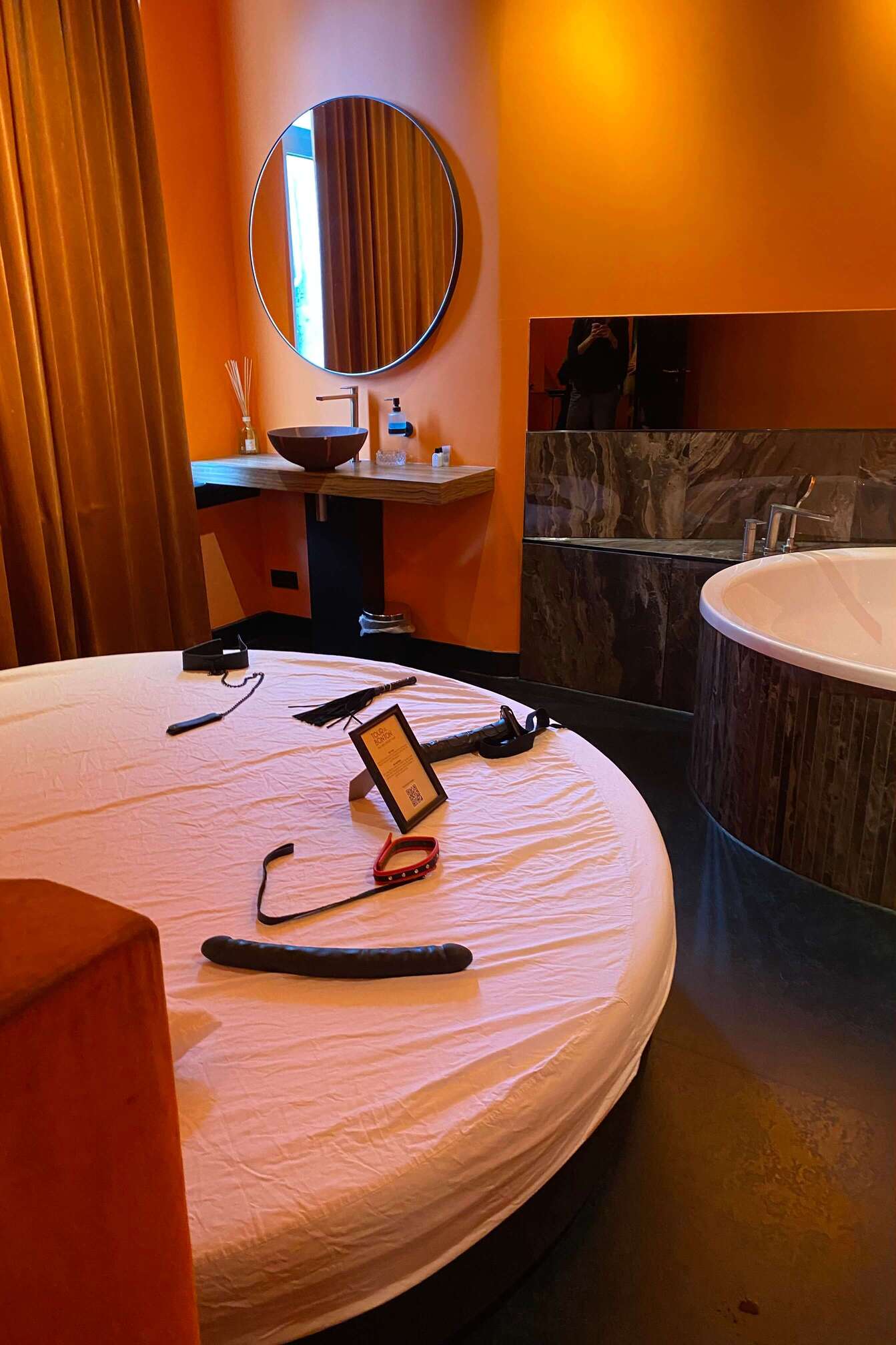Q&A with a sex worker
During a brothel tour, I met Lucy — a 61-year-old sex worker with a nurse’s heart
Lucy primarily works with people with disabilities. She also works at the Prostitution Information Center in Amsterdam.
Here’s what she shared in a Q&A session with us.
Just work, on her own terms
The first thing I asked Lucy was whether she sees sex work as just a job, like any other profession. Her answer was immediate: yes, it’s just a job. She also agrees that it can be empowering precisely because she sets her own boundaries.
Society’s stance differs: Amsterdam is relatively open-minded, but areas like the Dutch Bible Belt, with strong religious values, disapprove. Ironically, Lucy notes that clients from those regions are often among the most adventurous — perhaps due to repression.
The morality around sex work is a big issue. Not only do religious critics disapprove, but some feminists also argue that sex work is inherently oppressive and that clients “buy away” a woman’s right to say no
Lucy strongly disagrees.
That’s nonsense. I say no all the time.
She refuses clients who won’t pay her rate, ask for something she doesn’t offer, or simply make her uncomfortable. No explanation needed.

A 99-year-old client
She also doesn’t deny she works for money. It’s a job. One of her oldest clients is 99, has Alzheimer’s, and lives in a care home. He used to grope nurses due to his condition. Rather than medicate him into apathy, the staff — with his daughters’ approval — hired Lucy.
He knows Lucy as his “cuddles lady.” Now, he behaves better – he thinks she will be jealous if he pays attention to other women.
It works. It’s rewarding. But I wouldn’t do it without payment. He’s sweet, but not attractive.
Working with disabled clients: from nursing to escorting
One of the things I was most curious about was why Lucy chose to focus on clients with disabilities. It’s not something you often hear about — and I wanted to understand how that path opened up for her.
Lucy’s decision to focus on clients with disabilities comes from her background as a nurse. She had met people with physical or intellectual challenges who struggled to access relationships or sexual experiences, sometimes due to simple barriers—like the inaccessibility of the red light district for wheelchair users.
Everyone craves intimacy, she says, and she found purpose in making that possible.
She joined an agency that connects sex workers with disabled clients — after a mandatory intake interview. These interviews, required by law, are meant to confirm that workers aren’t trafficked and are making their own choices. They cover motivations, experience, and personal situations. The same applies to window work in the Red-light district.
Swedish model sucks
Lucy is adamant: legalization is the best way to protect workers. In contrast, models like Sweden’s (where selling sex is legal, but buying it isn’t) only push the industry underground. Interactions are rushed. Clients are afraid of the police. And they’re far less likely to report signs of trafficking.
A court journalist Lucy knows told her that in 8 out of 10 trafficking cases, it’s the client who alerts the authorities or helps the worker escape. That doesn’t happen when clients risk arrest.
This legal structure makes sex work far safer than in countries where it’s criminalized. Many women from abroad — Romania, Bulgaria, and beyond — come to Amsterdam, work five or six years, and return home with enough savings to buy property or start a business.
Amsterdam’s central police station has a dedicated prostitution team. Officers receive special training and there’s a 24/7 direct phone line for sex workers. Lucy describes it as “almost like having our own private police force.”

Female clients vs male clients
There is an escort agency in Amsterdam that serves female clients, but Lucy says the demand is too niche to make a living from.
Her colleague who worked there noticed a stark difference: female clients tend to prepare more. They might visit the hairdresser, dress well, and create a warm atmosphere with flowers and candles. By contrast, many male clients are less concerned with setting a mood.
In 12 years, Lucy has had only one female client — and she even picked Lucy’s dress up off the floor and put it on a chair. “No male client has ever done that,” she adds.

The highs and lows of the job
Some moments are genuinely enjoyable. An 80-year-old artist once took Lucy to a nice restaurant. He had lived in Mexico and Paris and was great company. Another client took her to a concert. One even invited her to the zoo — he just didn’t want to go alone.
But there are also long, slow days. In the windows, quiet hours drag by with just one client. Lucy brings coffee and a radio, but the waiting is dull.
Escort sessions can be difficult in a different way. The sex takes maybe seven minutes — twice at most. The rest of the time is filled with conversation, and that part can be exhausting.

Fetish clients are the best
Lucy says fetish clients are often the easiest to work with — they’re specific and predictable.
Foot fetishism is common, some just want to lick feet — easy money, no effort.
One client had a fetish for shiny PVC. Not leather, not latex—specifically PVC. He wore a costume; Lucy wore one too (which, by the way, is tax-deductible as “kinky attire”). They danced a bit, watched porn, had tea. Sometimes used a whip or handcuffs gently. He was almost 70. She didn’t even undress.
Another friend of hers, who works on webcam, had a client with a gummy bear fetish. He just wanted her to wear purple lipstick and eat gummy bears.

Double life and social stigma
Not all of Lucy’s family knows what she does. She has told a few people she trusts. The rest still think she’s a nurse — which works as a cover, since nurses often work odd hours.
She lives a double life. At parties, she can’t fully be herself. She avoids discussing her job and doesn’t use social media, keeping her real name and face off the internet for privacy.
Even in the Netherlands, stigma still exists. Lucy fears being outed — she could lose her home. And she’s noticed a cultural shift.
2025 © mehwowLinkedinPeople were more relaxed in the 1970s. Topless beaches, open attitudes. Now? Much more judgment. It feels like a step backward.
